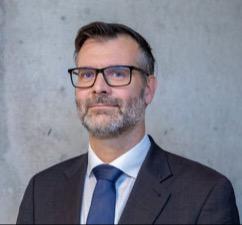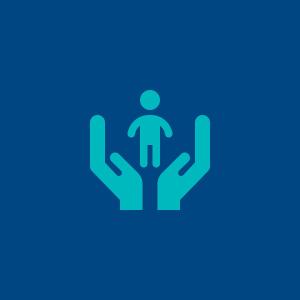Following a visit last year to Erbil, Kurdistan and a meeting with H.E. the Minister of Justice, the team from the Rule of Law Programme MENA of the KAS received a suggestion which entailed the translation of German laws relating to Child-protection and Juvenile sentencing and re-education. The following two German laws were therefore translated into Arabic: the first being the Law on Cooperation and Information in Child Protection (KKG) and the second being the Juvenile Courts Act (JGG).
The Juvenile Courts Act (JGG)
The Juvenile Courts Act (JGG) of 1953 set the legal framework of juvenile protection and re-education in post-war Germany by avoiding harsh punitive measures when it came to juvenile delinquency and rather oriented the German juvenile protection system into a more educative and fostering system which granted juvenile delinquents milder criminal sentences compared to criminal procedure.
The law started by defining what a juvenile (14-17 years old) was and what differentiates him from an adolescent (18-20 years old), to note that the transfer of juveniles to adult courts is not allowed in Germany, hence the need for courts specialized in juvenile criminal matters. Moreover, the law made its objective clear, one of the application of criminal law to juvenile delinquents to address issues of emerging crimes and recidivism.
This law’s procedures are to go hand in hand with the concept of raising children in order to achieve the aforementioned objective as well as to rightfully apply legal consequences all the while respecting the parents’ right to raise children in a dignified manner.
The law also states the classification of crimes which juveniles are capable of committing: felonies, misdemeanors and infractions. To restate what has been already said about the educative nature of the German juvenile justice system, it would be wise to mention the system’s corrective and preventive nature as well, owing to the employment of disciplinary and educational measures in a complementary fashion, such as: the rescinding of a driver’s license, admission to psychiatric hospital, professional counseling etc. The law expresses that juvenile court judges are to be assisted by advisory judges as well as committees and bodies specialized in the matter such as the Juvenile Advisory Committee and juvenile care offices that could assist the court by providing it with insight into a juvenile’s character, family background, upbringing etc. to ensure a fair and reasonable court decision.
What the Juvenile Courts Act (JGG) did not tackle in a more extensive manner however, was the way in which child abuse reports would be reported with due regard to medical confidentiality and privacy. Moreover, comments on matters of counseling and advice to the parents and children would be better addressed in later laws; this is where the Act on Cooperation and Information in Child Protection (KKG) comes into play.
The Act on Cooperation and Information in Child Protection (KKG)
The German Act on Cooperation and Information in Child Protection (KKG) was enacted on the 22nd of December 2011 but it did not come into effect until June 2021. The objective of this law is to ensure the welfare of children and adolescents as well as to foster their physical, mental, and spiritual development. Therefore, the Act pushes in the direction of the joint responsibility of parents with State institutions in child protection (Section 1).
Thus, the provision by each State of coordinated and diversified services for childbirth and the first three years of children’s lives. Moreover, parents shall be informed about support services in matters of child development in their local districts (Section 2).
Furthermore, the act has set the framework of binding network structures in child protection that are composed -in each State- of responsible service providers (e.g schools, counseling centers, family courts, members of the medical profession…) and state institutions working on child protection. In all cases, unless otherwise stated, binding cooperation in child protection shall be organized as a network by the local Youth Welfare Agency (Section 3).
Some professionals such as health professionals, psychologists, counselors and teachers who are bound by the obligation of confidentiality can disclose information in the event of a risk to the well-being of the child and can cooperate with the Youth Welfare agency (Section 4).
Finally if, in criminal proceedings, a danger to the well-being of a child or a young person has been detected, the public prosecutor or the judges shall notify the local public youth welfare institution and - if it has a jurisdiction - the supra local provider of public youth welfare and transmit the data necessary from its point of view to assess the risk of danger (Section 5).
Written by Marilyn Saliba & Patrik Saad
About this series
Bridging legal language barriers
The rule of law has always, but particularly been noteworthy in the Arab world since the 2011 popular uprisings that reformed the institutions in several countries of the region such as Tunisia, Egypt, Yemen, Libya and more. Laws and rulings present the norms in which society must conduct itself in. In many of the countries in the region, many laws are unimplemented, are selectively implemented or even are impossible to implement. Alongside the slow socio-economic growth these countries are facing – notably due to ongoing crisis across the region -, societies in the MENA region have to some degree still not grown accustomed to the importance of laws and rulings in organizing their societies.
As a result of Germany’s dark Nazi past, the country’s "Basic Law" (Grundgesetz) of 1949 has seen significant value within its people, as they see it as a sign of national pride. The members of the drafting constitutional council spelled out the essence of what they considered to be essential lessons for building a democratic state that upholds the rule of law and protects human dignity (Menschenwürde) against all imaginable future threats. The Grundgesetz created a legal framework for a stable and sustainable democracy, making it an obligation for the executive, legislative and judiciary powers to conform to these laws and the seperation of powers. With time, both laws and rulings have created a stable framework in which society and public institutions simultaneously work together in preserving individual rights.
In Middle Eastern and North African countries, there has been a steady evolution of law and legal systems, resulting from a mix between westernized “modern” influence as well as keeping its traditional values in place. Efforts in modernizing judicial and legal practices using western legal means have been a helpful tool in spreading democracy in the region. As part of this series, the Rule of Law Programme Middle East & North Africa translates court decisions and laws from German into Arabic. These efforts will permit young scholars to explore the importance of legislative and judicial work in developing a sustainable democratic system.
Beirut, 2023; by Philipp Bremer & Ahmad Jenzarli





